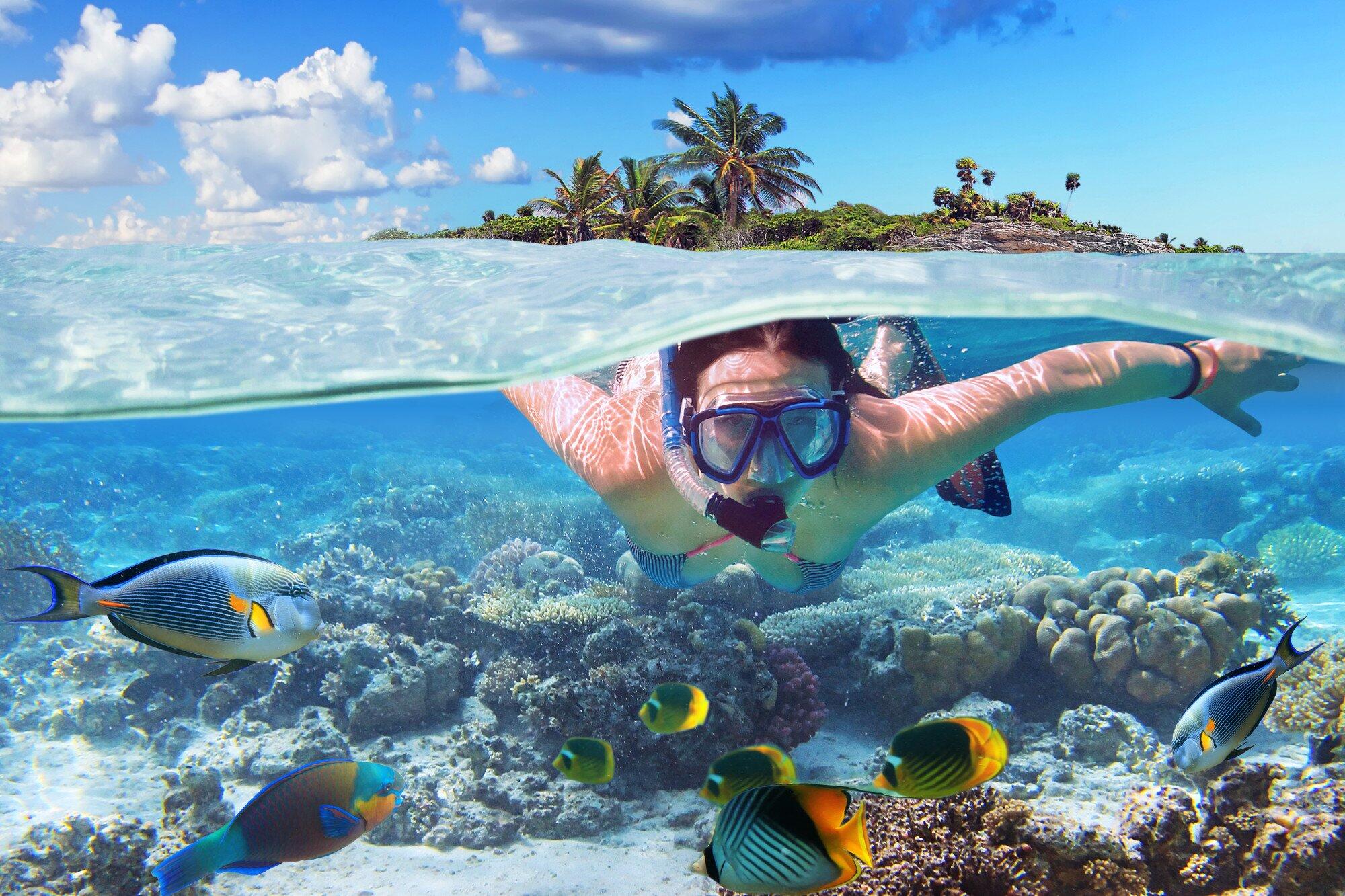
12 Essential Snorkeling Tips for Beginners
The crystal-clear waters beckon, the colorful marine life calls out to you, and the promise of exploring underwater worlds is thrilling and tranquil. Snorkeling is one of the most accessible and rewarding water activities available, capturing the imaginations of adventure-seekers and nature enthusiasts alike. But like any new pursuit, there are tricks of the trade that can transform your experience from good to great.
Here, we’ll take you through 12 essential snorkeling tips to ensure you’re gliding smoothly through the underwater realms, getting the most out of every breath you take beneath the waves.
1. Choose the Right Location
One of the snorkeling tips that can make or break your experience is choosing the correct location. Not all beaches and bodies of water are created equal – some have better visibility, more marine life to see, and less crowded conditions than others. Research beforehand to find a spot that suits your preferences and skill level.
Underwater snorkel trails and guided tours can also be great options for beginners.
2. Invest in Quality Gear
Investing in quality snorkeling gear is paramount to a comfortable and safe underwater experience. A well-fitting mask is crucial; it should seal appropriately around your face to prevent water from leaking in without being too tight.
Fins that fit well are also essential; they should be snug but not too tight, allowing efficient movement through the water without causing cramps or discomfort. The best tips for snorkeling include being prepared and comfortable in your gear.
3. Practice Proper Breathing Techniques
Breathing through a snorkel may take some time, but practicing proper breathing techniques can significantly enhance your experience. These snorkeling tips include taking slow, deep breaths through the mouth instead of short, rapid ones.
It’s also essential to clear any water out of your snorkel before inhaling, as this can cause choking or coughing. Practice in shallow waters until you feel comfortable and confident with your breathing technique. This will also help you conserve energy and stay underwater for extended periods.
4. Leave No Trace
Leave no trace behind when snorkeling. This means taking your trash with you and refraining from touching or taking any souvenirs from the ocean. Keep a safe distance from coral reefs and other fragile ecosystems, as even the slightest touch can cause damage.
If you go snorkeling with a guided tour or group, follow their rules and guidelines for responsible snorkeling. Remember, we are all stewards of the ocean, and it’s our responsibility to protect its beauty and inhabitants.
5. Use Fog Prevention Methods
There’s nothing more frustrating than a foggy mask obstructing your view while snorkeling. To prevent fogging, you can use commercial anti-fog solutions or natural alternatives such as baby shampoo or toothpaste to coat the inside of your mask before each dive.
Another helpful snorkeling tip for preventing fog is to avoid touching the inside of your mask with your fingers, which can transfer oils and cause fogging.
6. Keep Your Gear Secure
Losing or damaging your gear while snorkeling can quickly ruin an enjoyable outing. Ensure all your gear is secure and properly attached to your body to prevent this. Use a snorkel keeper to attach it to your mask strap, ensuring it stays in place while you swim.
Opt for fins with adjustable straps that can be tightened securely around your feet. You can also use neoprene socks or booties to comfort and prevent blisters.
7. Check Your Surroundings
Before diving into the underwater world, take a moment to check your surroundings. This includes attention to potential hazards like rocks, strong currents, or other snorkelers around you. If snorkeling in open water, stay safe from the shore and always have a buddy or guide for added safety.
Additionally, be mindful of any marine life around you and avoid touching or disturbing them. Remember, it’s their home that we are just visiting. Always check the weather forecast before heading out, as unexpected changes can significantly affect water conditions.
8. Equalize Pressure Regularly
Equalizing pressure in your ears is crucial when diving to deeper depths while snorkeling. This prevents discomfort and damage to your eardrums. To equalize, pinch your nostrils and gently blow through your nose while tilting your head slightly upwards. Do this regularly throughout your dive, especially when descending to deeper depths.
If you feel discomfort or pain, stop diving immediately and try equalizing again. If the issue persists, it may be a sign that you should end your snorkeling session for the day.
9. Stay Hydrated
Snorkeling is a physical activity that can quickly dehydrate the body, especially in warm waters or under the sun. Be sure to drink plenty of water before and after your snorkeling session to replenish lost fluids. It’s also a good idea to bring a water bottle with you on your snorkeling adventure.
Attending snorkeling lessons or guided tours is also a great way to learn about hydration and staying safe in the water. They can provide helpful tips on when and how much water to drink while snorkeling.
10. Protect Your Skin
With prolonged exposure to the sun, it’s important to protect your skin while snorkeling. Wear waterproof sunscreen with at least SPF 30 and reapply it regularly, especially after being in the water.
You can also wear a rash guard or long-sleeved shirt to protect against harmful UV rays. And don’t forget to wear a hat and sunglasses to protect your face and eyes.
11. Avoid Touching or Disturbing Marine Life
One of the most essential snorkeling tips is respecting marine life and their environment. Avoid touching or disturbing any creatures you encounter, as this can harm them and even put you in danger.
If you want to take pictures, keep a safe distance from the animals and never chase or corner them. Remember always to leave only your bubbles behind.
12. Take Breaks
Snorkeling can be a tiring activity, especially for beginners. Be sure to take breaks and rest when needed. This will prevent fatigue and allow you to enjoy your underwater experience fully.
If you feel tired or out of breath, signal to your buddy or guide that you need a break and stay near the surface until you catch your breath. Taking it slow and steady is always better than pushing yourself too hard.
Learning Essential Snorkeling Tips
These snorkeling tips and proper training and guidance will ensure a safe and enjoyable experience when exploring the underwater world. Always prioritize safety, respect marine life, and leave no trace behind. Most importantly, you should have fun and appreciate the beauty of the ocean while snorkeling.
Visit our website for more like this.








